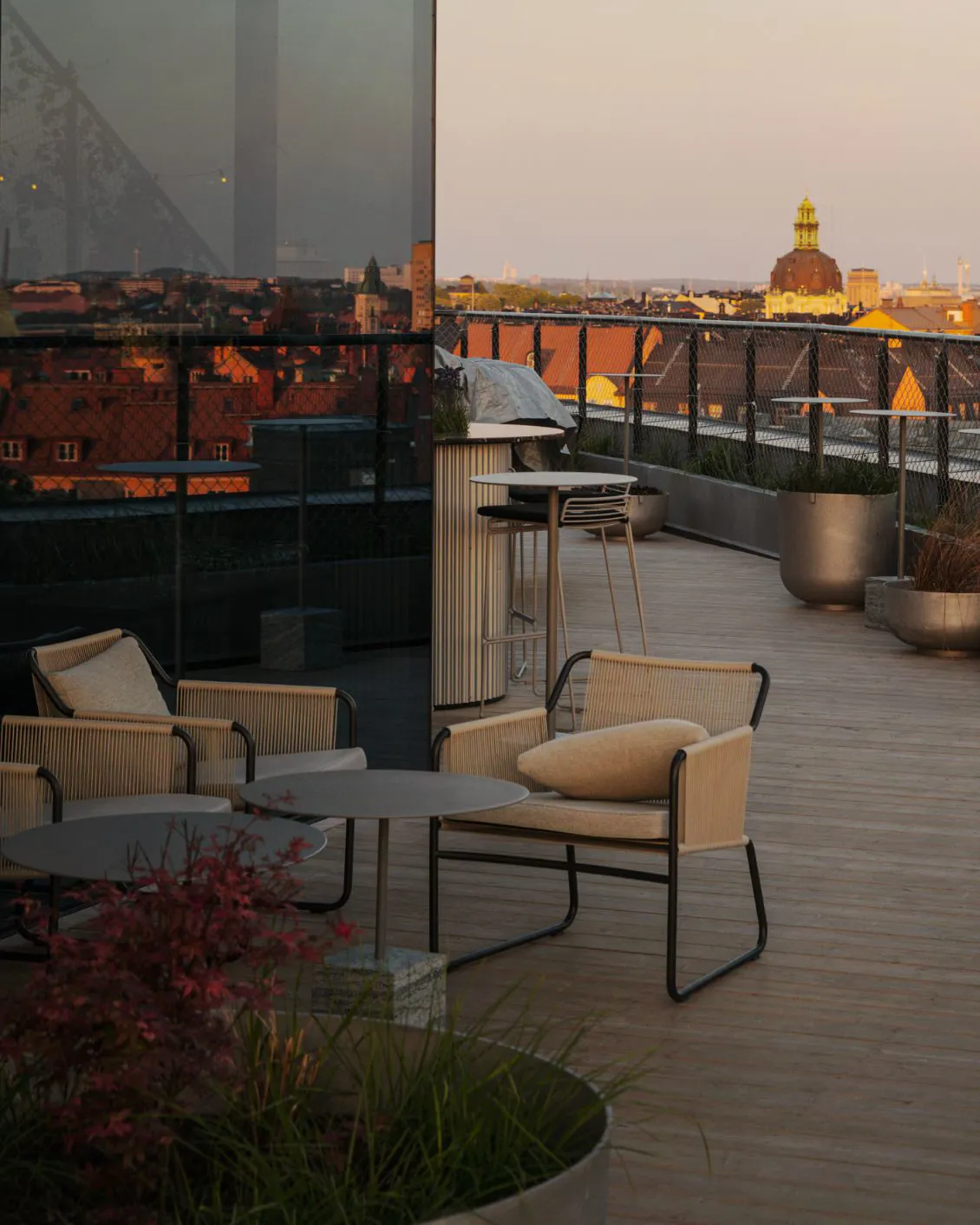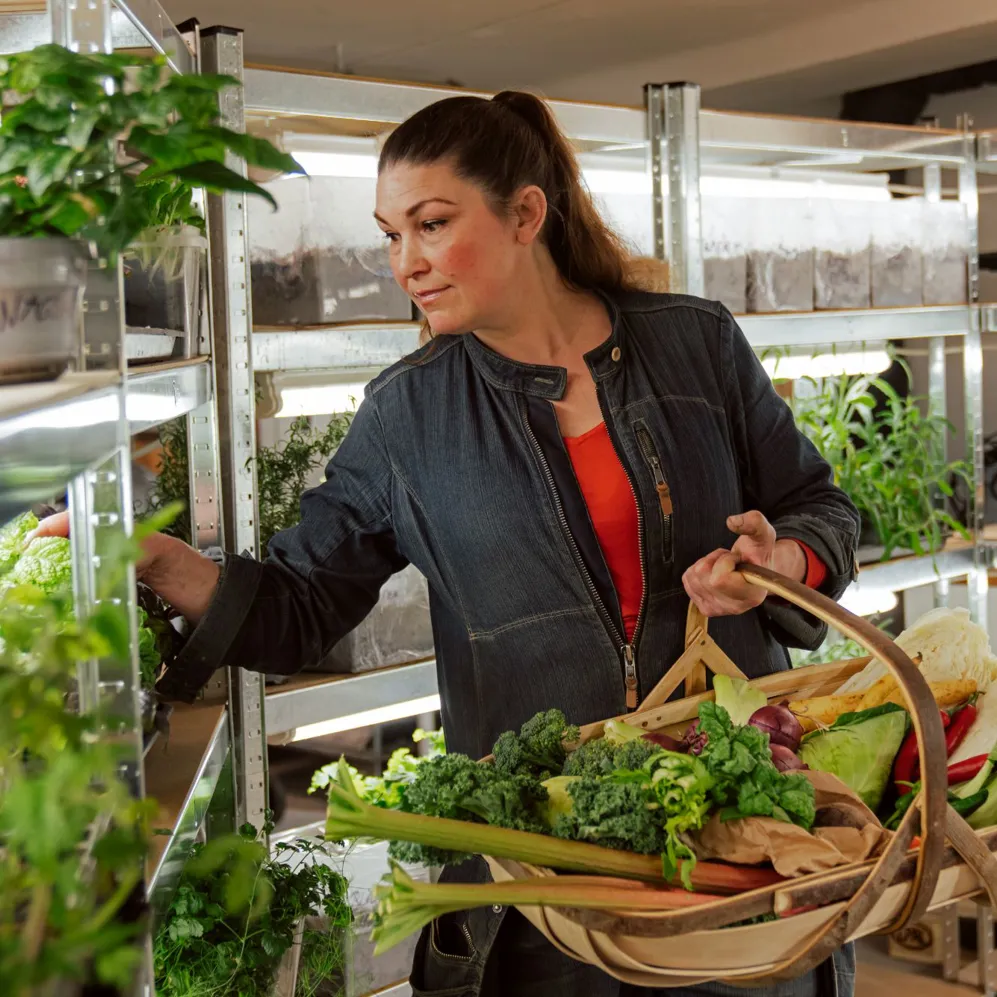
Words Allison Reiber DiLiegroDate 05 June 2024
Not only “can” we grow anything, but Jessica believes that we should. “Whether you’re a company or an individual, it’s important to grow food at home,” she tells us. “When we grow our own food, we learn more about sustainability and how the world works.”
With decades of farming experience behind her, Jessica has mastered the art of cultivating in real soil, underneath the sun, and working with nature rather than against it. Now, she brings her traditional, hands-on methods to untraditional spaces: the courtyard at Blique by Nobis, the hotel rooftop, and an indoor farm inside a former parking garage. In these spaces, she grows enough produce to share with the Nobis properties throughout the city.
We had a chat with Jessica about her personal farming philosophy, how she collaborates with chefs to design their menus, and why all of us—even city-dwellers—should grow our own food.
Seeking balance We are a small part of a big and complex system
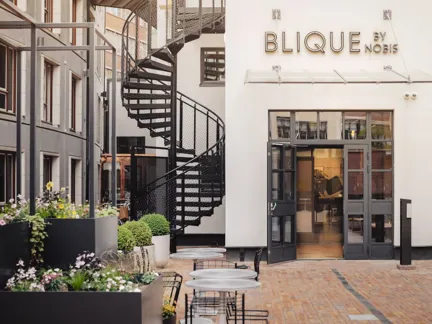
An edible landscape Produce grows near the hotel entrance
The biggest reason was the opportunity to teach people. I see a need for it. I come from a “grow your own food” background. It’s not only about becoming self-sufficient: When we grow our own food, we learn that we are a small part of a big and complex system. And if one little piece is missing, the balance is gone.
Yes, the compost machine is the green heart here at Blique. The compost machine brings us soil, so we are self-sufficient. We don’t need to buy fertilizer, and fertilizer can be a very dirty industry. We are circular: from soil to table to soil. This system was very inspiring for me.
Cooperation is very important. For example, I saw that they were buying a lot of microgreens, so I designed a system to grow more of them. There are expensive systems you can buy, but I made a simple one cheaply. I love these shortcuts. Sometimes we try to make things more complicated than they are. People think that they know best, but nature has taken millions and millions of years to develop this. So, I take inspiration from nature.
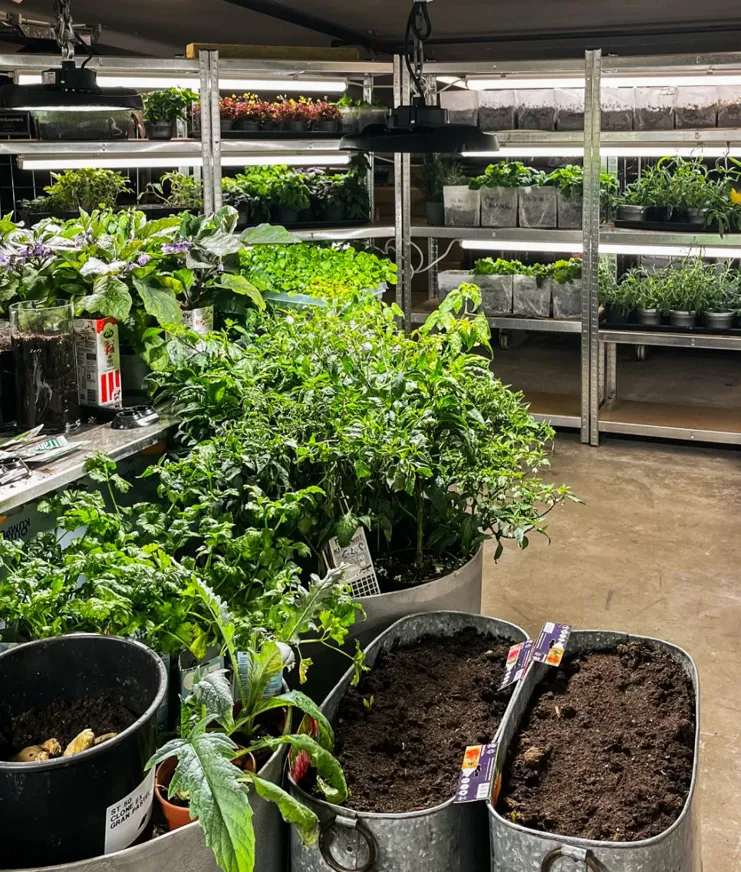
Innovative spaces An indoor farm is housed in a former parking garage
Soil to table to soil The compost machine is the green heart at Blique
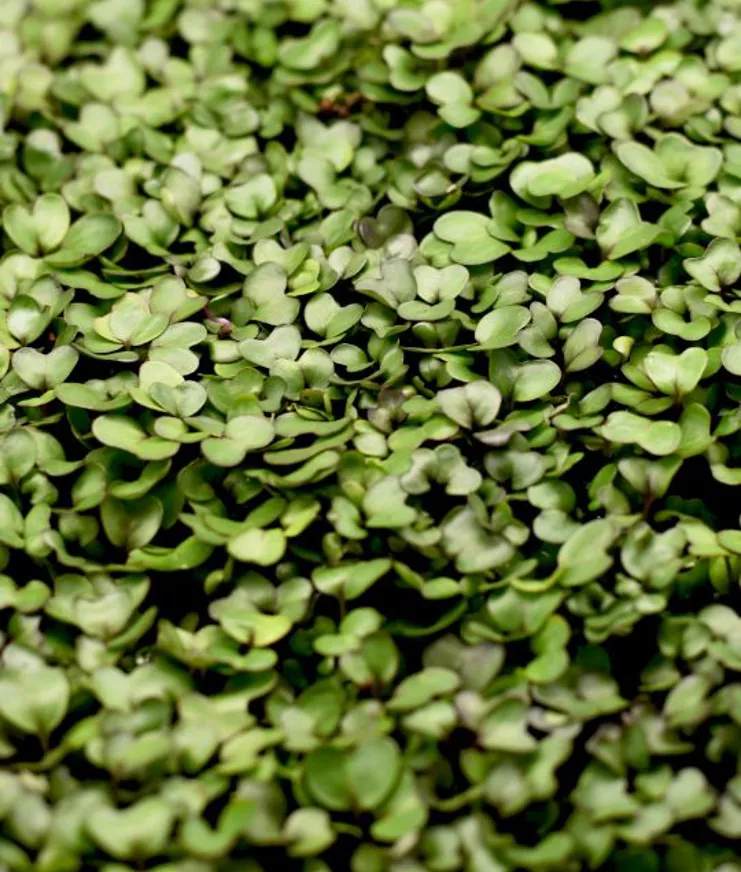
Microgreens grow Jessica decided to increase yield when she saw how much the kitchens used
It works both ways. Sometimes I bring them things to taste, go into the kitchen to see how they cook, and we start talking. Or they come into the garden to see what’s ready to harvest right now. Many times, the chefs come to the garden and realize “Oh, you can make something with this part of the vegetable” that I had never considered before. It’s a creative experience for everyone, and that makes it so much more fun.
And sometimes it’s as simple as “Can you grow this for us?” and I say “Yes, of course I can.”
No! Everything is possible. You just need to identify the spaces you have and see which is best. I always work with microclimates to make new and better habitats for what you want to grow. You just need to be curious, get inspiration from nature, and then copy that. That’s why I love my job—I learn new things every day. Anyone who likes to grow can grow. If it’s possible here, you can do it at home. Many guests get inspired to grow things on their balconies.
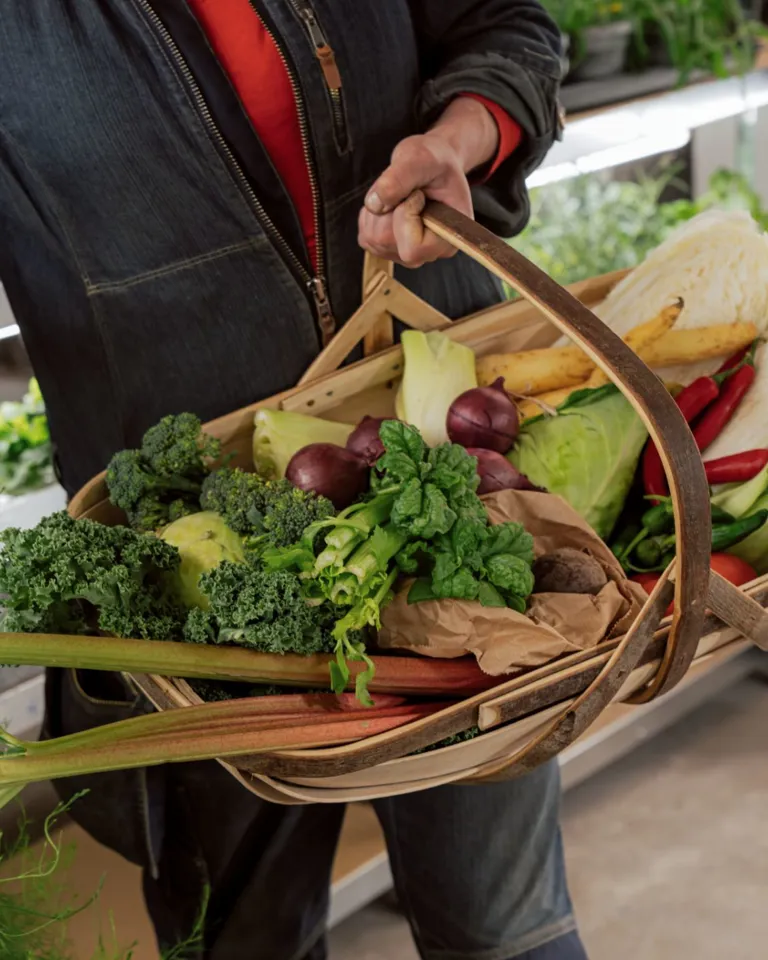
You should use the same soil all year round if possible. In nature, the soil is never bare. You should do the same on your balcony. Start in early spring with spinach, salad, or radish—the things that grow at just 3-4 degrees Celsius. Then you harvest and put in new things, such as tomatoes or cucumbers—whatever you like to eat. After you harvest that, you can start with something like Asian kale, which you can grow in August or September. I suggest that you grow a variety of vegetables because a monoculture system is a threat to the balance. You should put at least three species in the same pot. Then you have help from nature to grow what you want to grow, and you can harvest much more. And, depending on where you live, you can forage to harvest things that grow in nature.
You can pick things like hazelnuts and early leeks here in Sweden. When it grows on its own, it gives you more time to grow things that you don’t find in nature. In Stockholm, you need to have permission from the owner to harvest certain things, but others are Allemansrätten, which means we are free to pick. If you study a bit and get curious you can find a lot.
Oh, a lot of things. We are still in the development phase, and we always will be if we want to keep producing more. We talked about indoor mushrooms and growing seaweed somehow. It is only your imagination that has borders.
